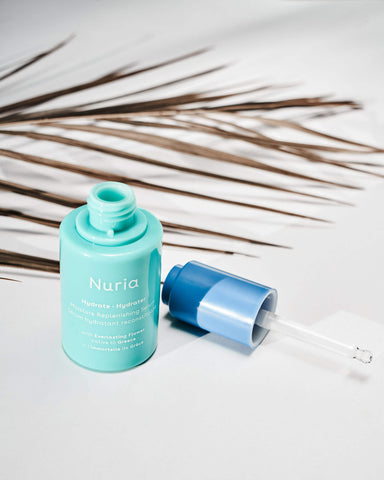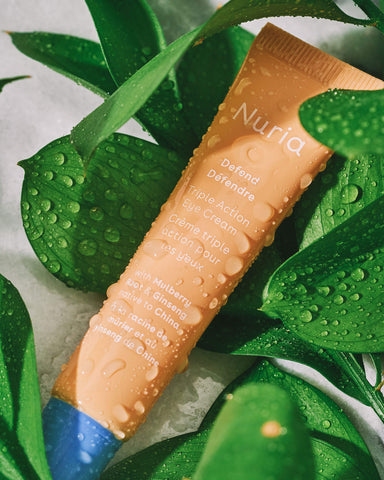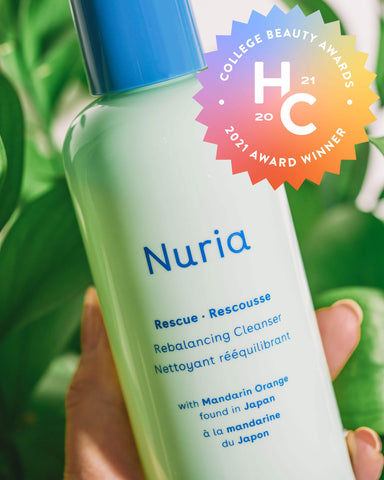
How Stress & Emotions Impact the Skin
Let’s begin with the bitter truth: stress shows! And what’s even more sour is that it’s hard to avoid. From sleepless nights and tragic breakups to unpaid bills and workplace drama — plus the added fuel of social media —- stress is our daily reality! So what does this mean for our skin? The catch is cumulative — in other words, all our negative energy, compounded over time, will eventually tell the story of our emotional ups and downs. But on a lighter note, by understanding how stress impacts our skin, we can create healthier habits to curb the consequences.
How stress affects the body
Stress is a mind-body reaction to our environment. When we experience a situation that puts us on high alert, the primitive part of the brain tells our body to prepare for a life-or-death situation. This response can trigger physical symptoms even if we’re not facing an all-that-serious threat.
For example, excessive worrying about completing a work deadline can trigger anxiety, inflammation, and exhaustion, similar sensations to what we may feel in extreme survival situations. The rationale behind these affects dates back to our early ancestors.
The origins of stress
Ancient humans were conditioned to endure the wilderness and fight off wild animals (or run from them) — hence going into “flight or fight” mode. This survival instinct is embedded in our genetic code and is central to our behavior programming.
This mechanism exists to protect us in dangerous situations. During a stressful event, our body responds as if it's in danger by releasing higher levels of the hormones, cortisol and adrenaline, explains Dr. Francoise Adan, a stress specialist in Santa Rosa, CA. As our heart rate increases, our muscles tighten and blood pressure skyrockets. These strenuous episodes take a huge toll on our physical well-being, especially our skin!
The effects of stress and emotions on skin
Stress sucks the sparkle from our skin. This issue, at its core, is an emotional one – something that lives strictly inside your head, says Dr. Adan. These feelings of worthlessness, depression, and guilt can manifest over the long-term, releasing chemicals that prevent our body from repairing our skin cells.
Let’s explore the common signs of stress-impacted skin.
Skin thinning and dehydration
When our bodies are charged-up with cortisol, it can start to break down dermal proteins and lose water retention. Normally under calmer conditions, we’re built to cope with this surge of hormones and handle these stressors. “However, we are living in a time of always being on and [so face] constant micro doses on a daily level,” says skin practitioner Anne de Mamiel.
If your body is constantly getting dosed with cortisol, your skin can become dryer, often accelerating the appearance of dark spots and wrinkles. To defend your skin’s ability to repair itself, a dermal booster like the Hydrate Moisture Replenishing Serum provides powerful antioxidant protection. Rather than just temporarily creating the illusion of hydration, this unique formula uses Everlasting Flower extract, a high-potency antioxidant that replenishes, plumps and nourishes.
Dullness and dark spots
The connection between stress and ashy skin is related to changes in our blood transit system. Through a chain of events, over time, stress can have massive impacts on our complexion if it persists non-stop.
Circulation & our complexion
The constant release of adrenaline exhausts our circulation system, inflaming the blood vessels – our transport carrier for critical care packages (nutrients, antibodies, and oxygen) for our skin cells. If these valves are swollen or damaged, the blood struggles to pass through them. And if fewer precious parcels reach its destination, our skin cells get lower levels of antioxidants and oxygenation, which means we’ll look more sallow and pale.
According to Denver-based Pulmonologist Dr. Michael E. Wechsler, "These [stress] hormones show on our faces in the form of baggy, puffy eyes and a dull or lifeless complexion." Fortunately, cosmetic science is making incredible leaps in the development of oxygen-boosting skin systems like the Stressed Skin Survival Set to brighten and revitalize your complexion. It re-awakens dull skin and reduces pigmentation without using harsh exfoliating microbeads; instead, the set focuses on natural resurfacing botanicals to restore radiance.
Less overall plumpness
A stress-induced surge of cortisol can slow collagen production, slowing the growth of new healthy skin. Since collagen is the glue that keeps our skin firm, once it depletes, our skin loses structure and its dewy sheen, explains Sheel Desai Solomon, MD, is a board-certified dermatologist based in Raleigh-Durham, NC.
She recommends retinol-based products to help speed up collagen growth. “Retinoic acid is the most active and effective retinoid, but also has the highest potential for irritation," warns Dr. Solomon. A popular alternative is retinyl palmitate, which is much gentler. “Retinyl palmitate can be a better option for some because it's less irritating," she points out. It’s the key ingredient in the Defend Triple Action Eye Cream, combined with cooling cucumber and illuminating ginseng, to revive the under eyes from stress-related aging.
Acne breakouts
Genetics isn’t the only cause of oily or acne-prone skin! Stress can also induce breakouts because cortisol leads to inflamed pores and more sebum production, explains Dr.Solomon. When sebum gets trapped in your pores and mixes with dead skin cells and bacteria, we’ve got the recipe for pus (ick, sorry, we know that word is cringey).
The Rescue Rebalancing Cleanser is gaining favor in the conscious beauty community for its innovative solution for hormonal breakouts. It combines the ancient wisdom of Korean skincare using Mandarin Orange and Rice Water to purify pores, while embracing natural ingredients like Rosehip Oil, Apple Amino Acids, and Loquat to calm and clarify your complexion.
Managing the effects of stress on your skin takes more than a great skincare routine. We need to stop treating our body like a part-time friend! By nurturing this relationship more lovingly, we’ll make that effort to improve our lifestyle, prioritizing the basics like sleep, diet, and of course, mental health! And whenever we can, we must remember to re-center our minds and bodies: get outside, breathe fresh air, and connect with nature.
About the author, Naomi Furgiuele
Naomi is the founder of Nuria and a self-professed nerd with a love for all things science and skin care. She’s had a hand in product development for some of the biggest global beauty brands in the business, gets some of her best ideas while out on a run, and loves her exfoliator almost as much as her awesome family.




